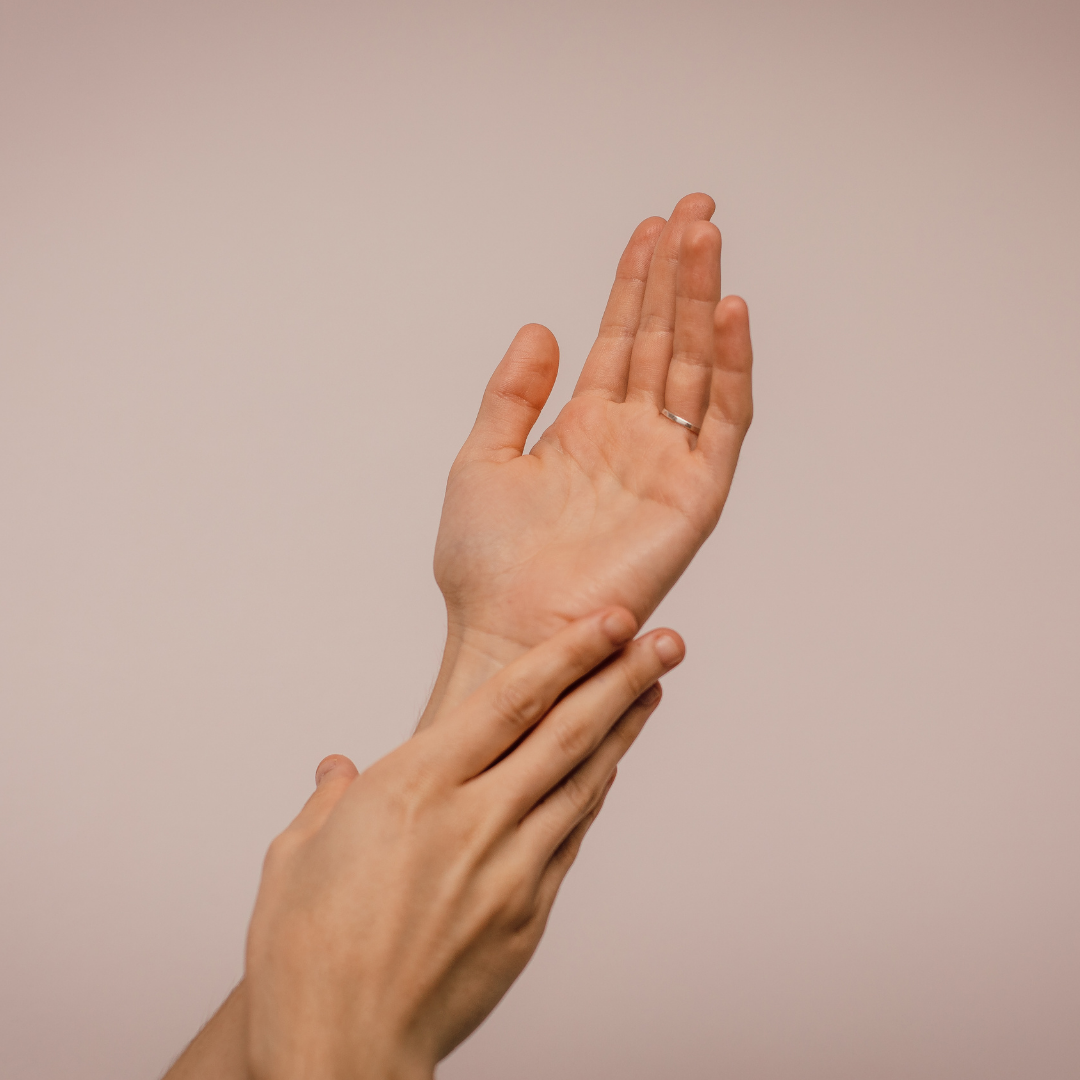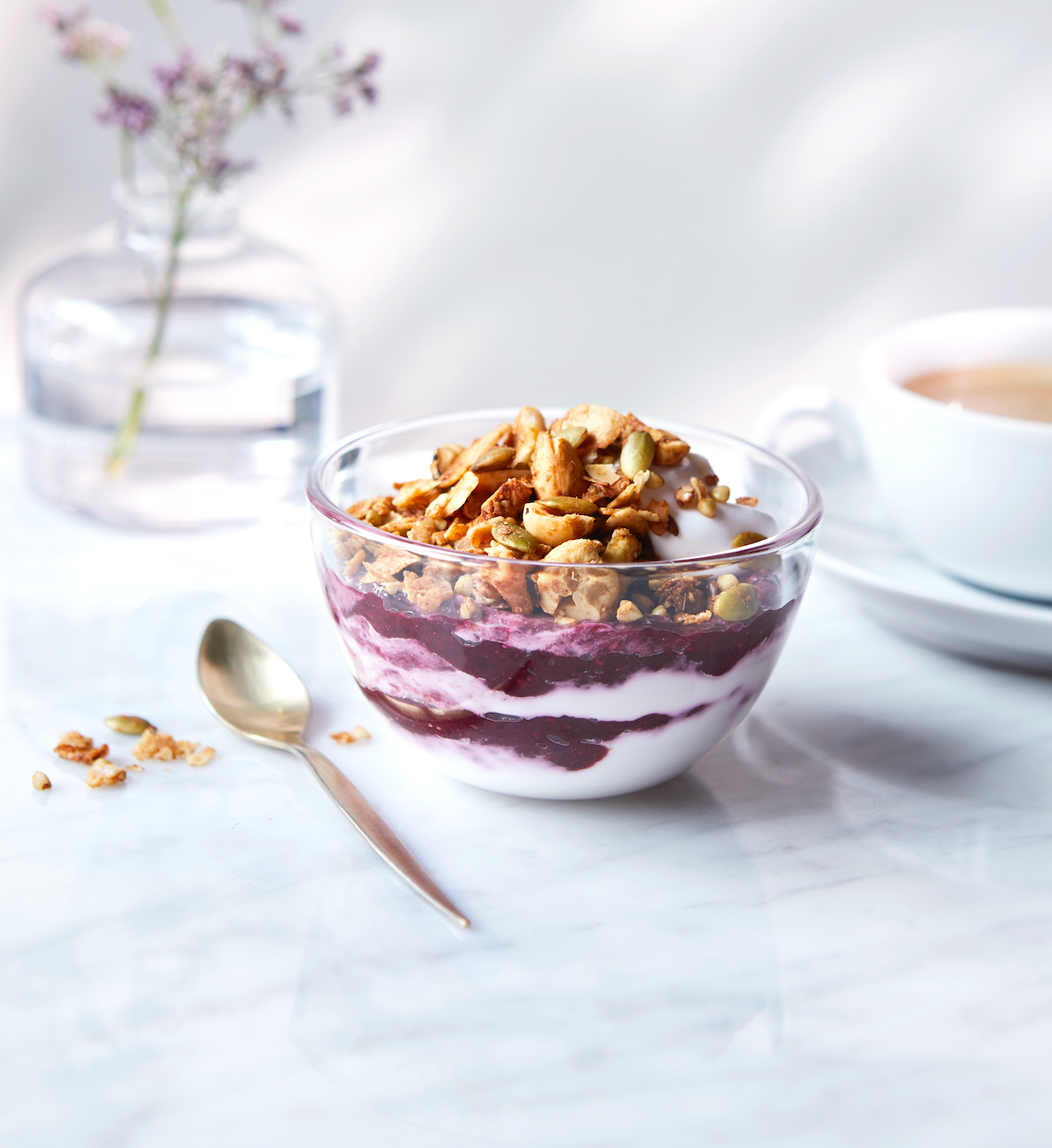
The True Connection Between the Gut and Skin | A Discussion Between a Psychodermatologist and Nutritionist
As researchers delve deeper into the science of the gut and how it is interlinked throughout the body, studies have also come to show that gut health can also have an impact on our external organs—the skin, in particular.
The increasing interest revolving around the gut has resulted in an array of misleading information found throughout the internet. We have decided to bring two professionals within the fields of nutrition and psychodermatology together, to answer everything that you need to know about the true skin and gut connection.
Georgine asks: Psychodermatology: what is it and why is it important?
Psychodermatologist, Dr. Alia Ahmed: Psychodermatology is a strand of dermatology that considers both the mind and the skin. It combines aspects of dermatology, psychology, and psychiatry. People with skin conditions are more likely to feel embarrassed, low, anxious, self-conscious and feel socially isolated. These feelings can then impact their skin, and can easily turn into a vicious cycle. In psychodermatology we recognize this link and treat not only the skin condition, but also the psychological impact that it is having. For example, someone with acne may be feeling anxious about being in a social environment because of their skin; this leads to stress, resulting in increased oil production and inflammation (both implicated in acne), therefore their acne becomes worse. My job as a Psychodermatologist is to treat their acne, but also discuss a range of techniques that they can use to overcome negative feelings and empower them to do the things they want. I assess the person as a whole, talking at length about emotions, lifestyle, skincare, work/study environment and relationships. Very few people realise how reactive their skin is to lifestyle choices!
The patients I see include those with chronic skin disease (e.g. acne, rosacea, vitiligo) that has a psychological impact (e.g. low self-esteem/body confidence, anxiety and depression), and those conditions that are impacted by stress (e.g. eczema, psoriasis, urticaria). ). In addition, I see patients whose skin problems are rooted in psychiatric or psychological distress (e.g. chronic itch, hair pulling, skin picking, nail biting and body dysmorphia).
Georgine asks: So how are the mind and the body intrinsically connected?
Psychodermatologist, Dr. Alia: Psychological stress and the skin are closely linked, I often say to my patients ‘stress causes skin disease and skin disease causes stress’. The brain has a stress-activated pathway that causes the release of various chemicals and hormones that drive inflammation both in the body and the skin. Feelings of emotional distress lead to the release of a stress hormone (cortisol), which is known to affect the immune system (making the skin less able to defend itself), drive allergic responses, delay healing and disrupt the skin’s natural barrier. The effects seen on the skin can vary, including feeling red, dry and itchy, as well as promote the formation of lines, wrinkles, pigmentation, signs of premature ageing and dull skin. Short-term stress (e.g. feeling anxious before a presentation/exam) can cause temporary problems like flushing, itching and sweating. Long-term (or chronic) stress however results in the body entering a permanent ‘stress-response’ state, which can aggravate existing skin problems through a poor natural immune response and ongoing inflammation. For example, high levels of stress are associated with a higher severity of skin disease in people with psoriasis and eczema.
Georgine asks: Speaking of stress: do you have any tips on wellbeing coming out of COVID?
Psychodermatologist, Dr. Alia: COVID-19 has been a true test for us all. The global pandemic has infiltrated our lives on so many levels. As we are now watching the turn of the tide, there are several simple things that we can do to protect and preserve our mental wellbeing.
- Manage your environment
Curate a positive environment that provides direct input to your senses (e.g. touch, smell, taste, sight, hearing). This can be done through using scents that you like (e.g. candles, diffusers, room/pillow sprays), or music and textures (e.g. soft blankets/throws/pillow or cushion covers). I have found managing my immediate environment helps me to focus and make the most out of my daily activities. Our environments have become much more important recently as many people have been restricted to leave their homes or are now working from home. Research shows that a stressful environment (e.g. noise, lack of comfort and privacy) can affect mental health and wellness. Your physical environment is just as important as your mental state!
- Positive activities
An activity is ‘something you do or the state of doing’. People often relate this word to a strenuous physical activity, but it does not have to be! Think about activities that you enjoy (e.g. taking 10 minutes to have your morning coffee, taking a walk, calling your loved ones) and try to incorporate one of these this into the beginning of your day (as you are more likely to do it!) or build into your timetable so you can look forward to it. These types of positive activities make you more alert, restore balance and elevate mood.
- Engage in self-dialogue
Engage in self-dialogue to combat negative thoughts. Doing this can reframe your way of thinking and has become increasingly important in a climate of uncertainty. You can engage in self-dialogue at any time within your day. Some examples of positive affirmations (a form of self-dialogue) are:
“We will get through this”
“ I will not feel stressed about things out of my control”
“I release worry”
“I am safe and in control”
- Deal with negative thoughts
Negative thoughts are normal and happen to everyone. However, a negative thought can lead to negative emotions and behaviour. Negative thoughts that tend to recur, and have an impact on your mental wellbeing, must be dealt with. Challenging the validity of a negative thought can limit its damage. Some helpful questions to ask yourself in response to negative thoughts are:
“How true is this negative thought?”
“Does this thought add to my life or day in any way?”
“Am I able to accept this negative thought/emotion and move on?”
“Can I add a positive angle to this thought?”
Answering these questions can help to start to reframe the thought or put it into better context.
Georgine asks: Now the big question on everyone’s mind: what is the relationship between the gut and the skin?
Psychodermatologist, Dr. Alia: The relationship between the gut and the rest of the body is mediated by the gut microbiome (consisting of bacteria, viruses, fungi and protozoa that live in the gut). Some of the important functions of the gut microbiome are related to immunity. With specific reference to skin, the gut microbiome has been demonstrated in a number of important processes; this includes homeostasis (maintaining the normal functions of the skin), allostasis (restoring function after an insult) and dysbiosis (impaired skin function due to microbial imbalance). The relationship may also be multi-directional; when stress negatively impacts gut function, it can result in the malabsorption of nutrients and upregulation of inflammatory pathways implicated in skin disease.
Georgine asks: Fascinating! The relationship between the gut and the skin is increasingly being studied: what can you tell us about what we know for now?
Psychodermatologist, Dr. Alia: More research is required to accurately describe the relationships between the gut and the skin, some preliminary findings are:
- Breakdown products of the microbiome can affect inflammatory pathways implicated in skin disease
-
Effect on hair follicle regulation
-
Improved wound healing
-
Possible influence of intestinal bacteria in promoting skin disease
-
Links between the gut and skin microbiome that may affect skin immunity
-
Probiotic supplementation improves skin barrier function in animal and human studies (some effects described include improvement in acne, reduced water loss, improved skin hydration, reduced wrinkle depth, improved elasticity)
-
Microbial imbalance is implicated in impaired skin function, illustrated in 3 common skin conditions (acne, atopic dermatitis/eczema, psoriasis)
Georgine asks: Are patients increasingly interested in the relationship between the two?
Psychodermatologist, Dr. Alia: I have experienced an increase in conversations about the connection between the gut and lifestyle, and how this can directly impact the skin. A good example of this is in cases of acne, where patients have often tried a number of dietary modifications and are curious as to what could be triggering their acne. In my practice, diet forms a whole part of the consultation as I understand how the gut and nutrition may impact skin function (as well as overall health).
Georgine asks: What does this mean for the world of dermatology?
Psychodermatologist, Dr. Alia: Incorporating accurate dietary advice and dispelling myths about diet and its relationship with skin is becoming increasingly important in dermatology. Research into the gut-brain-skin axis is showing extremely interesting results and has great promise for influencing holistic management of skin disease. The gut microbiome is influenced by diet. Incorporating advice about supporting the activity of the gut in order to positively impact skin is a new concept in dermatology.
Dr. Alia asks: What does this mean for the world of food?
Nutritionist, Georgine Leung: A holistic approach to food and nutrition is ever so important in a world denominated by social media. For the longest time, we have categorised food as ‘good’ or ‘bad’ , however this deems to be very unhelpful when we know we that should be eating more and less of certain foods. Eating well has a plethora of benefits as we all know, and it’s not just reducing disease risk. It contributes to general wellbeing which is so important to maintaining all normal functions of the body. What we know about gut health is only just emerging, but one thing we know for sure that it is made up of trillions of microorganisms and it is important to keep them happy by eating a healthy, varied diet. It is also important to remember that we focus on eating foods not just nutrients—this is why eating a balanced diet composed of mostly whole grains, vegetables and fruit -is crucial for health.
Research has shown that we are influenced by over 200 different factors when it comes to eating, and only a handful of these are ‘conscious’ that includes health considerations. A majority of these factors come from our food environment, this is why healthy eating can be more complicated than ‘an individual choice’ and could indeed be quite stressful. Making changes to a diet can be a long-term process, so as a responsible food business, we ensure that what we offer at Kurami is well-balanced, delicious and interesting, to support our customers on this journey. We have a strong focus on fibre through providing a range of fruit and vegetables, whole grains, nuts and seeds—many of these remain quite novel in the retail landscape. We also make sure we help dispel the myths around diet, and help develop the understanding of food and nutrition in a holistic way.
Georgine asks: Discussing online noise and overwhelming information, how are food companies and healthcare professionals joining forces to help dispel common beliefs in order to bring the focus back to science?
Psychodermatologist, Dr. Alia: The impact of food choices on the skin have historically been mostly derogatory (e.g. “chocolate causes acne”), but now the search is on for foods that instead support and revive the skin. These foods may already be known to the experts; however, the food industry now have the unique opportunity to promote skin-friendly nutrition. As a healthcare professional I would like to be able to discuss the science behind the gut-brain-skin axis with food companies to see how the findings can be incorporated into meal management and supplementation. Removing the negativity around food portrayal and skin problems is a personal goal as there is usually little evidence that points to one food/ingredient as a cause for a particular skin problem.
Dr. Alia asks: What is Kurami?
Nutritionist, Georgine Leung: Inspired by the Maori word Kura, which means to treasure, our philosophy at Kurami is to provide delicious and nutritiously balanced meals that are freshly prepared in the kitchen. We make use of the latest research in nutrition to understand what it means in everyday eating to create our dish offerings, but most importantly making sure that healthy eating messages are consistent by dispelling myths and misunderstandings in nutrition.
We provide every meal, for everyday. Each day of the meal plan comprises of a breakfast, two main meals, a drink and a snack. We believe that eating well can be exciting and bursting full of flavours. This is why all of our foods are designed by our in-house chef and nutritionist to make sure our menu offering is unique and bespoke to our London customers.
Georgine asks: Why does it appeal to you as a specialist?
Psychodermatologist, Dr. Alia: I find the concept of Kurami particularly compelling because the aim is to treasure and nourish your body through one of its basic needs, food! Kurami recognises the importance of gut health and the impact it has on organ systems, including the skin. Beauty is a concept I personally struggle with, because it is so abstract and personal. What is beautiful to one person may not be to another, and it is usually based on external factors. Kurami is attempting to attain ‘beauty from within’; this is a message that I find relatable and would like more people to adopt. I know that internal health can affect the exterior, so I advocate for building a strong foundation through diet, exercise and lifestyle.
Georgine asks: What are your top tips on improving your relationship with food in order to improve both your mind and skin?
Psychodermatologist, Dr. Alia:
-
Having a healthy, well balanced diet can have positive impacts on the skin barrier via the gut.
-
Taking a proactive approach to meal management and incorporating nourishing foods into your diet can be a good way to improve general health and mental wellbeing.
-
Modifying the gut microbiome (e.g. through pro/pre/syn-biotic supplementation) may have a role in the prevention and management of skin disease.
Overall, this discussion brings us to the clear conclusion that skin health goes beyond lotions, creams, and even diet. Instead, healthy skin can be achieved through supporting your mental wellbeing by incorporating more positive practices into your life on the daily, whilst also eating a variety of vibrant fruits, vegetables, legumes, and whole grains that are high in fibre to support a healthy gut. Although eating a more wholesome range of foods can be highly beneficial for your health, maintaining a healthy relationship with food is just as important.
At Kurami, we aim to dispel myths within the health and wellness community, and instead, work to advocate focusing on eating nutritiously delicious foods, that allow you to feel good inside and out. The use of the science of nutrition within our meals can only go so far, and although we work to spread this message throughout the Kurami platforms, it can only be found within you to find true healing and peace of mind with food.
At Kurami, we make finding balance within your life as enjoyable as possible, by providing our beloved customers with freshly prepared, chef-crafted, and nutritionist-approved meals. Each meal included in our journeys are curated with a unique focus on the gut, therefore they are assured to be satisfying, satiating, and mood-boosting.
Discover beauty from within. Order your meal path now, and begin your journey with us today.
Dr Alia sees NHS patients in the Frimley Health Foundation Trust. She consults privately at The Bridge Clinic (Maidenhead) and Epsom Skin Clinic. Please click here to find out more about Dr Alia, or follow her on instagram @the_psychodermatologist.
www.
References
Arck P., Handjiski B., Hagen E., Pincus M., Bruenahl C., Bienenstock J., et al. (2010). Is there a ‘gut–brain–skin axis’? Exp. Dermatol. 19 401–405.
Baba H., Masuyama A., Yoshimura C., Aoyama Y., Takano T., Ohki K. (2010). Oral intake of Lactobacillus helveticus-fermented milk whey decreased transepidermal water loss and prevented the onset of sodium dodecylsulfate-induced dermatitis in mice. Biosci. Biotechnol. Biochem. 74 18–23.
Benyacoub J., Bosco N., Blanchard C., Demont A., Philippe D., Castiel-Higounenc I., et al. (2014). Immune modulation property of Lactobacillus paracasei NCC2461 (ST11) strain and impact on skin defences. Benef. Microbes 5 129–136.
Bloomfield S. F., Rook G. A. W., Scott E. A., Shanahan F., Stanwell-Smith R., Turner P. (2016). Time to abandon the hygiene hypothesis: new perspectives on allergic disease, the human microbiome, infectious disease prevention and the role of targeted hygiene. Perspect Public Health 136 213–224.
Bowe W., Patel N. B., Logan A. C. (2014). Acne vulgaris, probiotics and the gut-brain-skin axis: from anecdote to translational medicine. Benef. Microbes 5 185–199.
Chang Y., Trivedi M. K., Jha A., Lin Y., Dimaano L., García-Romero M. T. (2016). Synbiotics for prevention and treatment of atopic dermatitis: a meta-analysis of randomized clinical trials. JAMA Pediatr. 170 236–242.
Chapat L., Chemin K., Dubois B., Bourdet-Sicard R., Kaiserlian D. (2004). Lactobacillus casei reduces CD8 + T cell-mediated skin inflammation. Eur. J. Immunol. 34 2520–2528.
Chen Y., Wu C., Chao Y., Lin C., Tsai H., Li Y., et al. (2017). Lactobacillus pentosus GMNL-77 inhibits skin lesions in imiquimod-induced psoriasis-like mice. J. Food Drug Anal. 25 559–566.
Clemente J. C., Ursell L. K., Parfrey L. W., Knight R. (2012). The impact of the gut microbiota on human health: an integrative view. Cell 148 1258–1270.
Eppinga H., Weiland C. J. S., Thio H. B., van der Woude C. J., Nijsten T. E. C., Peppelenbosch M. P., et al. (2016). Similar depletion of protective Faecalibacterium prausnitzii in psoriasis and inflammatory bowel disease, but not in hidradenitis suppurativa. J. Crohns. Colitis 10 1067–1075.
Fabbrocini G., Bertona M., Picazo Ó., Pareja-Galeano H., Monfrecola G., Emanuele E. (2016). Supplementation with Lactobacillus rhamnosus SP1 normalises skin expression of genes implicated in insulin signalling and improves adult acne. Benef. Microbes 7 625–630.
Frei R., Akdis M., O’Mahony L. (2015). Prebiotics, probiotics, synbiotics, and the immune system: experimental data and clinical evidence. Curr. Opin. Gastroenterol. 31 153–158.
Guéniche A. G., Benyacoub J., Buetler T. M., Smola H., Blum S. (2006). Supplementation with oral probiotic bacteria maintains cutaneous immune homeostasis after UV exposure. Eur. J. Dermatol. 16 511–517.
Guéniche A. G., Benyacoub J., Philippe D., Bastien P., Kusy N., Breton L., et al. (2010). Lactobacillus paracasei CNCM I-2116 (ST11) inhibits substance P-induced skin inflammation and accelerates skin barrier function recovery in vitro. Eur. J. Dermatol. 20 731–737.
Hacini-Rachinel F., Gheit H., Le Luduec J. B., Dif F., Nancey S., Kaiserlian D. (2009). Oral probiotic control skin inflammation by acting on both effector and regulatory T cells. PLoS One 4:e4903.
Jeong J. H., Lee C. Y., Chung D. K. (2016). Probiotic lactic acid bacteria and skin health. Crit. Rev. Food Sci. Nutr. 56 2331–2337.
Jung G. W., Tse J. E., Guiha I., Rao J. (2013). Prospective, randomized, open-label trial comparing the safety, efficacy, and tolerability of an acne treatment regimen with and without a probiotic supplement and minocycline in subjects with mild to moderate acne. J. Cutan Med. Surg. 17 114–122.
Kim J. Y., Kwon J. H., Ahn S. H., Lee S. I., Han Y. S., Choi Y. O., et al. (2010). Effect of probiotic mix (Bifidobacterium bifidum, Bifidobacterium lactis, Lactobacillus acidophilus) in the primary prevention of eczema: a double-blind, randomized, placebo-controlled trial. Pediatr. Allergy Immunol. 21 e386–93.
Ogawa M., Saiki A., Matsui Y., Tsuchimoto N., Nakakita Y., Takata Y., et al. (2016). Effects of oral intake of heat-killed Lactobacillus brevis SBC8803 (SBL88TM) on dry skin conditions: a randomized, double-blind, placebo-controlled study. Exp. Ther. Med. 12 3863–3872.
O’Neill C. A., Monteleone G., McLaughlin J. T., Paus R. (2016). The gut-skin axis in health and disease: a paradigm with therapeutic implications. Bioessays 38 1167–1176.
Philippe D., Blum S., Benyacoub J. (2011). Oral Lactobacillus paracasei improves skin barrier function recovery and reduces local skin inflammation. Eur. J. Dermatol. 21 279–280.
Poutahidis T., Kearney S. M., Levkovich T., Qi P., Varian B. J., Lakritz J. R., et al. (2013). Microbial symbionts accelerate wound healing via the neuropeptide hormone oxytocin. PLoS One 8:e78898.
Ramírez-Boscá A., Navarro-López V., Martínez-Andrés A., Such J., Francés R., de la Parte J. H., et al. (2015). Identification of bacterial DNA in the peripheral blood of patients with active psoriasis. JAMA Dermatol. 151 670–671.
Rather I. A., Bajpai V. K., Kumar S., Lim J., Paek W. K., Park Y. (2016). Probiotics and atopic dermatitis: an overview. Front. Microbiol. 7:507
Schwarz A., Bruhs A., Schwarz T. (2017). The short-chain fatty acid sodium butyrate functions as a regulator of the skin immune system. J. Investig. Dermatol. 1 855–864.
Song H., Yoo Y., Hwang J., Na Y., Kim H. S. (2016). Faecalibacterium prausnitzii subspecies–level dysbiosis in the human gut microbiome underlying atopic dermatitis. J. Allergy Clin. Immunol. 137 852–860.
Vaughn A. R., Notay M., Clark A. K., Sivamani R. K. (2017). Skin-gut axis: the relationship between intestinal bacteria and skin health. World J. Dermatol. 6 52–58.



